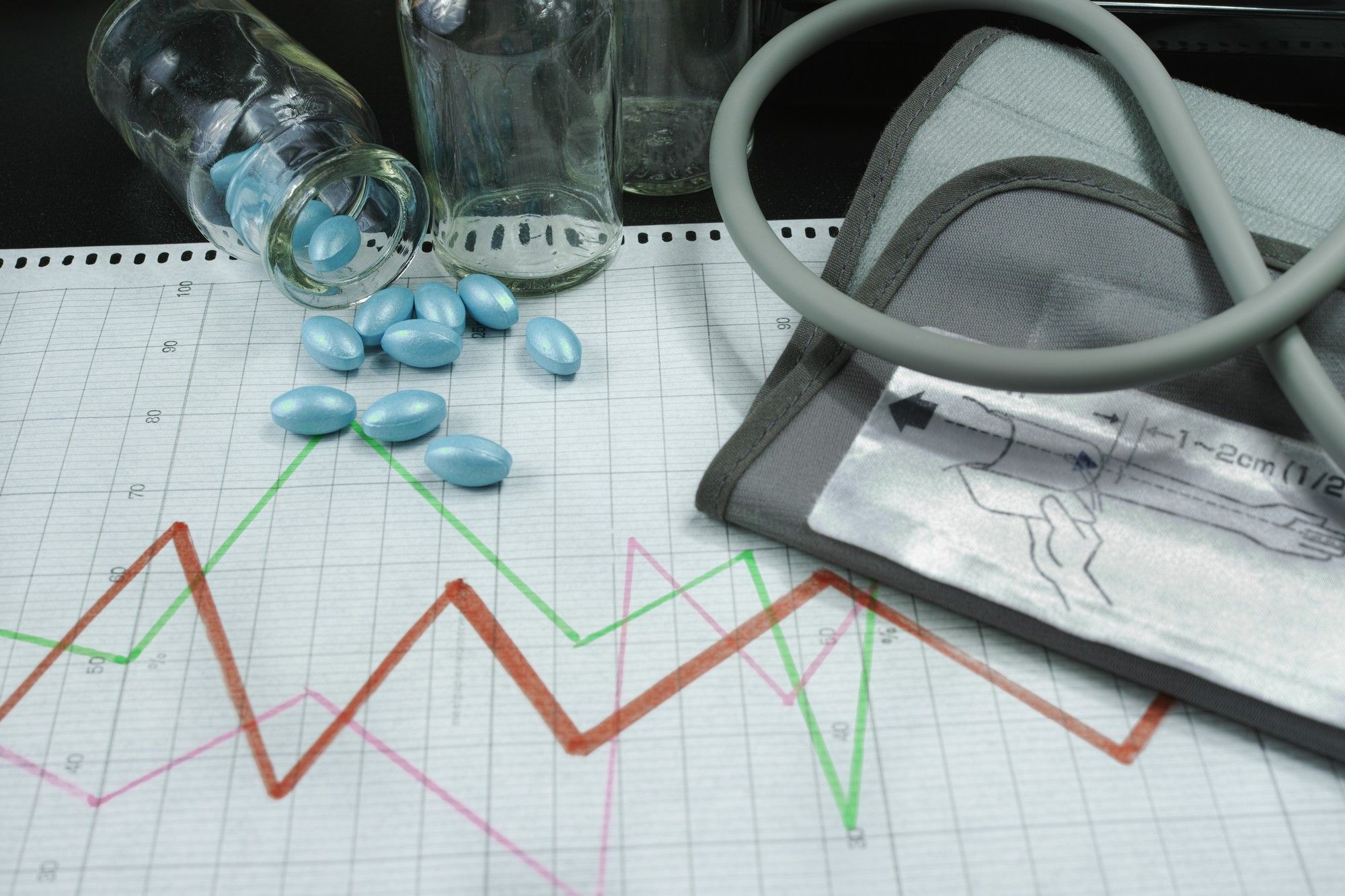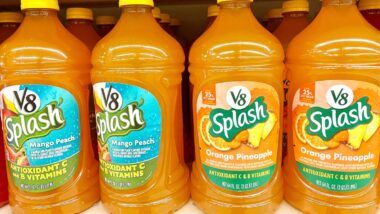Top Class Actions’s website and social media posts use affiliate links. If you make a purchase using such links, we may receive a commission, but it will not result in any additional charges to you. Please review our Affiliate Link Disclosure for more information.
Modern pharmaceuticals have significantly improved the health of millions of patients who once suffered chronic conditions, but every prescription pill comes with risks, including risks of contamination or recall as is the case with valsartan.
What Is Valsartan Used For?
Valsartan, also sold under the brand name Diovan, is a medication used to treat hypertension, an all-too-common condition also known as high blood pressure.
It is considered an angiotensin II receptor blocker, or ARB, which means that it stymies a substance called angiotensin from causing blood vessels to contract. Instead, valsartan allows the veins and arteries to relax so that blood flows more freely to and from the heart, lowering the patient’s blood pressure.
It is essential to keep blood pressure at an optimal level in order to ensure the body gets a healthy supply of oxygen-rich blood without the heart having to strain and pump harder to circulate it.
Left untreated, high blood pressure can damage the heart, the kidneys, and the brain, as well as cause strokes.
Valsartan is also sometimes used “to treat heart failure and left ventricular failure after a heart attack,” according to the Mayo Clinic. Left ventricular failure occurs when the left side of the heart, which contains the main pumping chamber, becomes compromised – typically it stiffens or becomes enlarged – and causes blood to pool in the lungs.
Occasionally, valsartan is prescribed to treat kidney disease in people with diabetes and high blood pressure, a condition called diabetic nephropathy.
Valsartan HCT, or Diovan HCT, is a combination of hydrochlorothiazide, a diuretic, and valsartan. Sometimes referred to as a water pill, it works by removing excess sodium and water from the blood, which helps lower blood pressure, according to Healthline.
Is Valsartan a Blood Thinner?
Often times, doctors prescribe patients with high blood pressure or heart disease a medication referred to as an anticoagulant, or a blood thinner. These drugs literally thin the blood’s consistency to make it easier for the heart to pump it through the body, both to take it easy on an otherwise at-risk heart and to get the blood moving through constricted or blocked blood vessels.
Valsartan is different from blood thinners in that it doesn’t change the thickness of the blood but opens the vessels through which the blood flows.
What Valsartan Side Effects Should You Watch For?
Valsartan can cause an array of side effects, some common and manageable, others more serious and concerning. The most common valsartan side effects are headache, excessive tiredness, nausea, diarrhea, stomach pain, back pain, joint pain, blurry vision, cough, and skin rash. More serious valsartan side effects include swelling of the face, throat, tongue, lips, eyes, hands, feet, ankles, or lower legs as well as unexplained weight gain.
Rare cases of acute liver injury have been reported among possible valsartan side effects, according to a report published by the National Institutes of Health.
The valsartan/hydrochlorothiazide combination drug can cause dizziness, lightheadedness, or dehydration.
 What Is the Valsartan Recall About?
What Is the Valsartan Recall About?
In July 2018, the U.S. Food and Drug Administration (FDA) announced a voluntary recall of hundreds of lots of high blood pressure medication, including a valsartan recall, over concerns the pills were tainted with nitrosodimethylamine, or NDMA, which is a likely carcinogen. Additional testing later showed some of the pills also contained nitrosodiethylamine, or NDE, which is also suspected to cause cancer, according to a report by the USA Today.
The FDA says it is unclear how many people were affected by the NDMA-contaminated valsartan, but the agency has sought to quell the fears of patients who are worried they may have taken the tainted medication and increased their risk of getting cancer or any other illness.
What Is NDMA?
According to the FDA, NDMA is “classified as a probable human carcinogen (a substance that could cause cancer) based on results from laboratory tests.” The compound is a “known environmental contaminant” that has been found in food – including meat – and water.
The Environmental Protection Agency states that NDMA is a chemical that can form during natural and industrial processes. The substance itself is a semivolatile organic chemical that forms a yellow liquid with no distinct smell. It used to be used in rocket fuel, notes the agency, but is currently only used in research.
“NDMA can be unintentionally produced in and released from industrial sources through chemical reactions, such as those that involve alkylamines with nitrogen oxides, nitrous acid or nitrite salts,” states the agency’s fact sheet on NDMA. “Potential industrial sources include byproducts from tanneries, pesticide manufacturing plants, rubber and tire manufacturers, alkylamine manufacture and use sites, fish processing facilities, foundries and dye manufacturers.”
The EPA warns that it is a highly mobile probable human carcinogen. It can easily leach through soil into groundwater and humans are generally exposed orally. Research on animal exposure to the substance has resulted in tumors in mice and rates, specifically on the liver, respiratory tract, kidneys, and blood vessels, notes the agency’s fact sheet.
While the FDA has established maximum allowable levels of NDMA in tablets, scientists recently concluded that more research needs to be conducted on the substance. Researchers identified two manufacturing processes that can lead to NDMA contamination in drugs, including inadequate cleaning of equipment. According to a 2019 study, questions remain about how readily the human body absorbs NDMA from various prescription drugs, including valsartan.
Join a Free Valsartan Lawsuit Investigation
A current class action lawsuit is considering patients who ingested valsartan and are therefore at a risk for developing cancer to serve as class representatives.
Fill out the form on this page for a FREE case evaluation.
ATTORNEY ADVERTISING
Top Class Actions is a Proud Member of the American Bar Association
LEGAL INFORMATION IS NOT LEGAL ADVICE
Top Class Actions Legal Statement
©2008 – 2024 Top Class Actions® LLC
Various Trademarks held by their respective owners
This website is not intended for viewing or usage by European Union citizens.
Get Help – It’s Free
Join a Free Valsartan Lawsuit Investigation
If you qualify, an attorney will contact you to discuss the details of your potential case at no charge to you.
PLEASE NOTE: If you want to participate in this investigation, it is imperative that you reply to the law firm if they call or email you. Failing to do so may result in you not getting signed up as a client or getting you dropped as a client.
Oops! We could not locate your form.


 What Is the Valsartan Recall About?
What Is the Valsartan Recall About?










